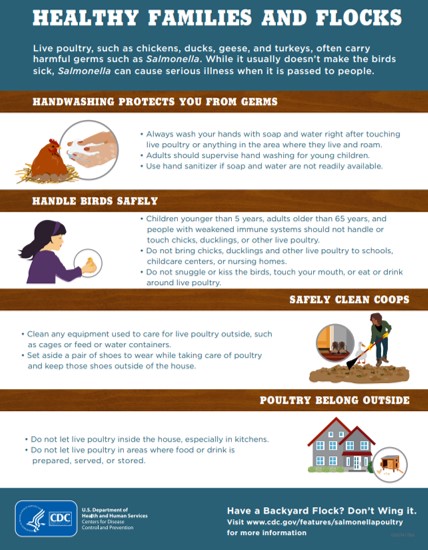Raising backyard chickens is becoming increasingly popular in urban and suburban American. For some, keeping a small flock of chickens in your backyard has many benefits from enjoying and caring for these pets, for eggs, for meat, or for eating pests. While some people will sell the eggs for side income.

Keeping chickens in an urban environment is a type of urban agriculture, important in the local food movement, which is the growing practice of cultivating, processing, and distributing food in or around local towns and cities.
Such practice is growing in popularity throughout the country as many communities, towns, and cities over the years have moved to re-write city ordinances to allow backyard chickens with some restrictions. In fact, there is an entire growing community of people online and on social media for those that are raising backyard chickens.
Walmart, Amazon, Wayfair, Tractor Supply and other retailers have all caught wind of this growing trend and are all now selling chicken coops to help fuel this craze.
As fun and interesting as this trend may be, there are some common concerns associated with the practice of raising chickens in residential areas, specifically noise, odor, attraction of predators/pests, property values, and health.
Predators and rodents are already living in urban areas and chicken coops have been known to attract everything from snakes, coyotes, raccoons, foxes, and flies. Most modern chicken coops are designed to keep predators away however mice and rats are still attracted to the chickens which bring in the other predators.
Fowl and backyard birds have had a history of spreading diseases and even pandemics in the past, as backyard birds recently bore the brunt of the blame for Egypt’s Avian flu outback in 2014.

Just recently the CDC issued a warning on the “Outbreak of Salmonella Infections Linked to Backyard Poultry.”
As of May 15, a total of 97 people infected with the outbreak strain of Salmonella Hadar have been reported from 28 states and Kentucky leads the country with 9 cases reported. Epidemiologic evidence shows that contact with backyard poultry (such as chicks and ducklings) is the likely source of this outbreak.
In interviews, ill people answered questions about animal contact in the week before they became ill. Of 44 people interviewed, 38 (86%) reported contact with chicks and ducklings before becoming ill, of which 17 people (34% of those with information available) have been hospitalized and no deaths have been reported.
Despite these recent trends, raising backyard chickens can still be safe and enjoyable if you follow the suggested CDC guidelines:
Wash your hands.
• Always wash your hands with soap and water right after touching backyard poultry, their eggs, or anything in the area where they live and roam.
• Adults should supervise handwashing by young children.
• Use hand sanitizer if soap and water are not readily available.
Be safe around poultry.
• Don’t kiss backyard poultry or snuggle them and then touch your face or mouth.
• Don’t let backyard poultry inside the house, especially in areas where food or drink is prepared, served, or stored.
• Set aside a pair of shoes to wear while taking care of poultry and keep those shoes outside of the house.
 Keven Moore works in risk management services. He has a bachelor’s degree from the University of Kentucky, a master’s from Eastern Kentucky University and 25-plus years of experience in the safety and insurance profession. He is also an expert witness. He lives in Lexington with his family and works out of both Lexington and Northern Kentucky. Keven can be reached at kmoore@roeding.com
Keven Moore works in risk management services. He has a bachelor’s degree from the University of Kentucky, a master’s from Eastern Kentucky University and 25-plus years of experience in the safety and insurance profession. He is also an expert witness. He lives in Lexington with his family and works out of both Lexington and Northern Kentucky. Keven can be reached at kmoore@roeding.com• Don’t eat or drink where poultry live or roam.
• Stay outdoors when cleaning any equipment or materials used to raise or care for poultry, such as cages and containers for feed or water.
Supervise kids around poultry.
• Always supervise children around poultry and while they wash their hands afterward.
• Children younger than 5 years of age shouldn’t handle or touch chicks, ducklings, or other poultry. Young children are more likely to get sick from germs like Salmonella.
Handle eggs safely.
• Collect eggs often. Eggs that sit in the nest can become dirty or break.
• Throw away cracked eggs. Germs on the shell can more easily enter the egg though a cracked shell.
• Eggs with dirt and debris can be cleaned carefully with fine sandpaper, a brush, or a cloth.
• Don’t wash warm, fresh eggs because colder water can pull germs into the egg.
• Refrigerate eggs after collection to maintain freshness and slow germ growth.
• Cook eggs until both the yolk and white are firm. Egg dishes should be cooked to an internal temperature of 160°F (71°C) or hotter. Raw and undercooked eggs may contain Salmonella bacteria that can make you sick.
Be Safe My Friends























There are many advantages to owning your own chickens. Farm fresh eggs are healthier, tastier, and readily available from your own back yard. Meat birds are fast growing, take little space to raise and are fairly inexpensive for the resulting outcome in food production. Raising your own chickens means you get to decide what goes into the making of the final product.